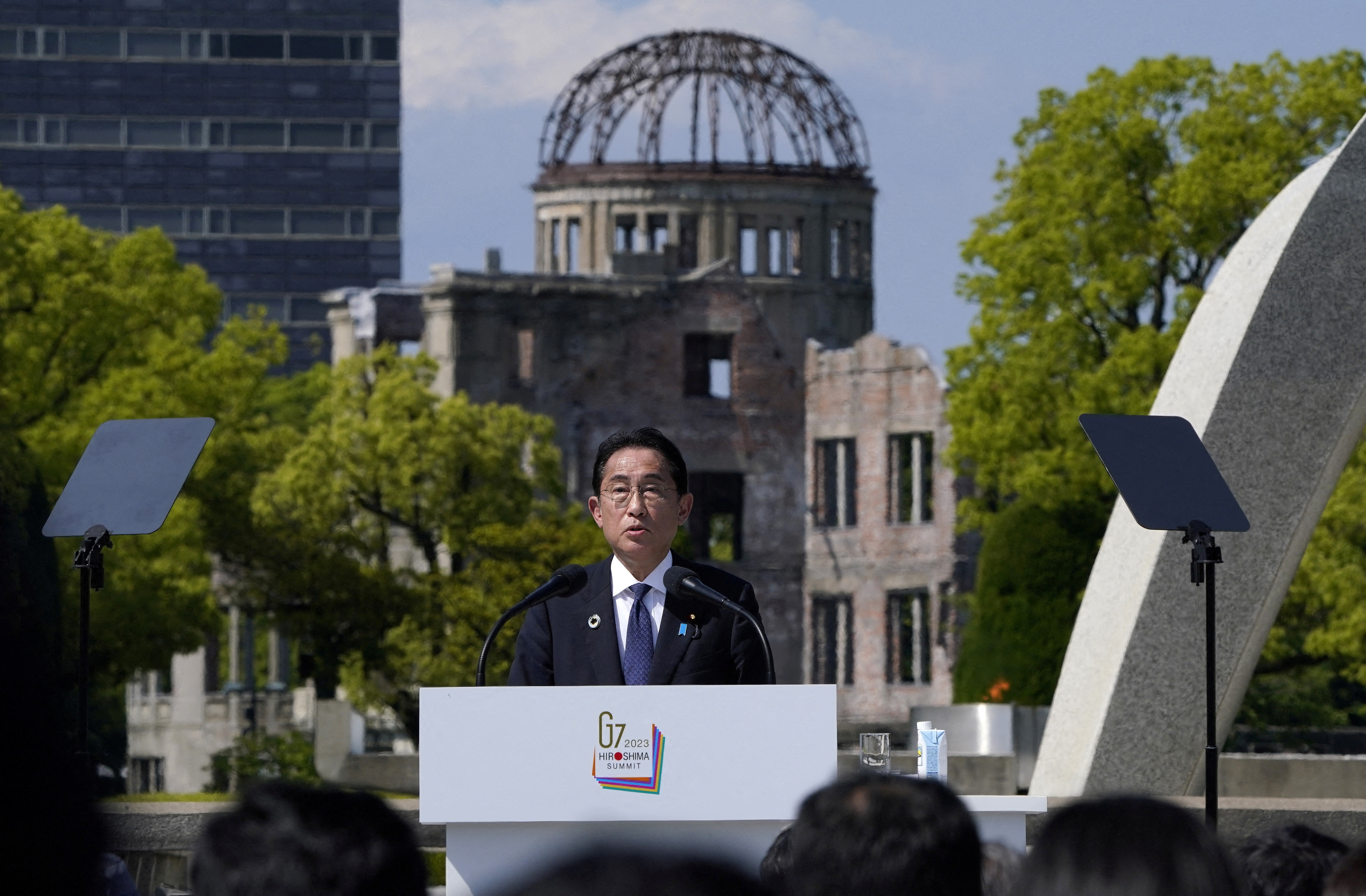Japan on Sunday marked the 78th anniversary of the U.S. atomic bombing on Hiroshima, where its mayor urged the abolition of nuclear weapons and called the Group of Seven leaders’ notion of nuclear deterrence a “folly”.
The day to commemorate the victims of the world’s first nuclear attack comes as Russia has raised the spectre of using nuclear weapons in its war with Ukraine.
It also comes as biopic “Oppenheimer”, chronicling the creation of the atomic bomb, has become a box-office hit in the United States. Some have criticised the film for largely ignoring the weapons’ destruction of Hiroshima and Nagasaki – bombed three days later, on Aug. 9, 1945.
The film’s release in Japan has yet to be announced.
Also causing controversy in Japan, the distributor of “Barbie”, a blockbuster released on the same day as “Oppenheimer”, latched on to fan-produced “Barbenheimer” memes that depicted the actors in the title roles alongside images of nuclear blasts.
Hiroshima was in the spotlight in May, where Prime Minister Fumio Kishida hosted a G7 summit in the western city, his home constituency. G7 leaders issued a statement expressing their commitment to achieving disarmament but said that as long as nuclear weapons existed, they should serve to deter aggression and prevent war.
On Sunday, a peace bell tolled at 8:15 a.m. (2315 GMT on Saturday), the time the bomb was dropped. About 50,000 participants in the outdoor memorial ceremony including ageing survivors observed a moment of silence, with the summer heat hitting 30 degrees Celsius (86 Fahrenheit)
“Leaders around the world must confront the reality that nuclear threats now being voiced by certain policymakers reveal the folly of nuclear deterrence theory,” Hiroshima Mayor Kazumi Matsui said at the ceremony, also attended by Kishida.
The prime minister said the road to a world without nuclear weapons was getting steeper, due in part to Russia’s nuclear threats, but that this made it all the more important to bring back international momentum towards that goal.

United Nations Secretary-General Antonio Guterres expressed his support.
“World leaders have visited this city, seen its monuments, spoken with its brave survivors, and emerged emboldened to take up the cause of nuclear disarmament,” he said in remarks read by a U.N. representative. “More should do so, because the drums of nuclear war are beating once again.”
The bomb dropped on Hiroshima on Aug. 6, nicknamed “Little Boy”, killed thousands instantly and about 140,000 by the end of the year. Japan surrendered on Aug. 15.
REUTERS

